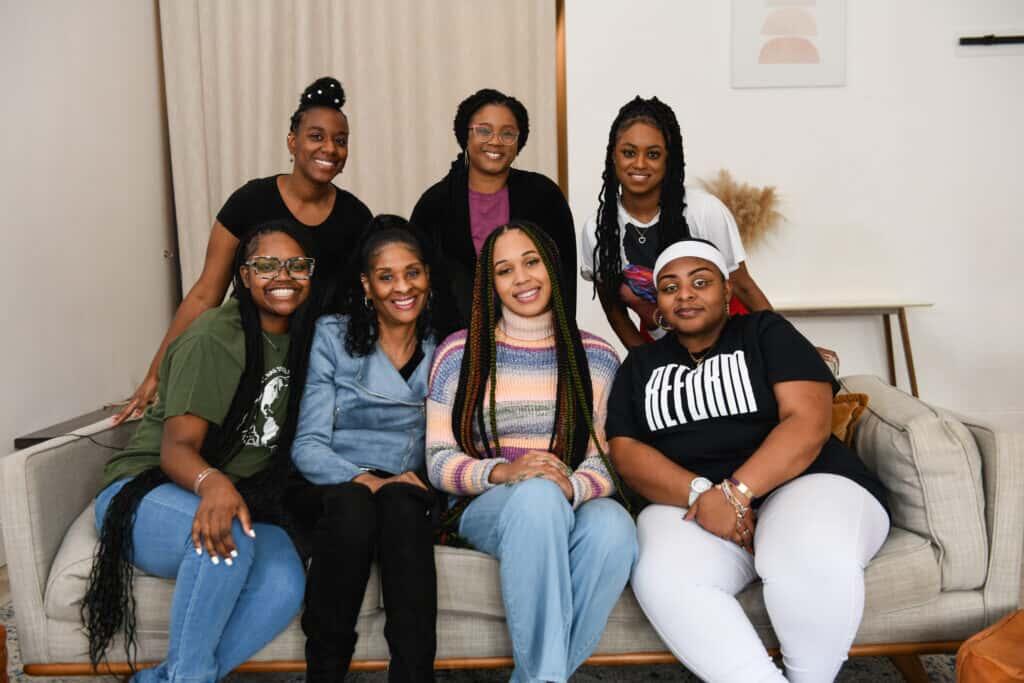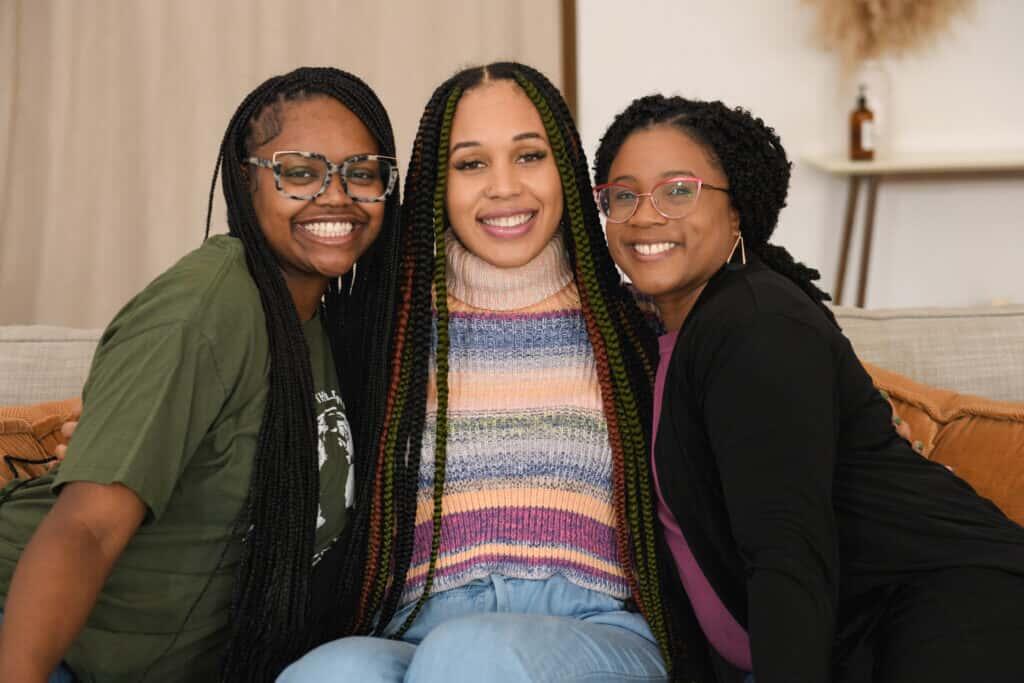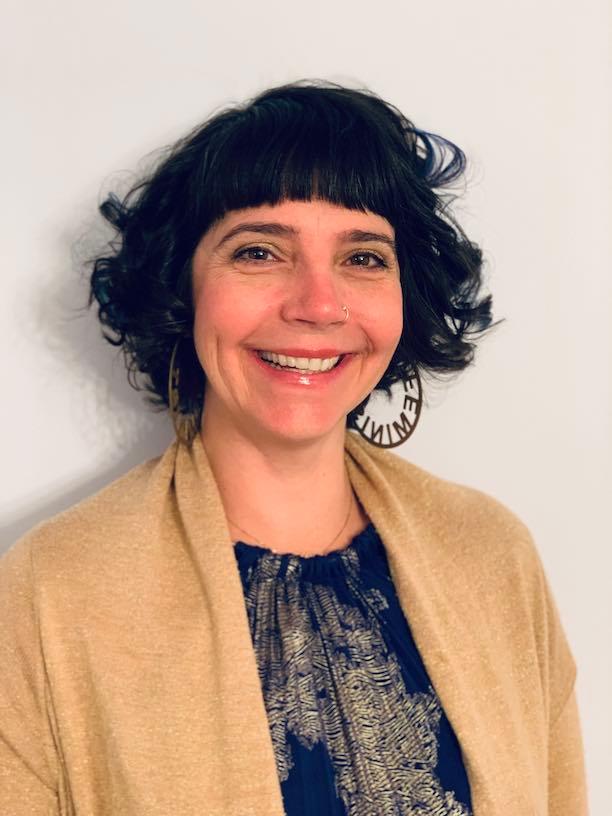The Restorative Work Of Sista Afya And Camesha Jones-Brandon

While nearly one million people live on the South Side of Chicago, most mental health organizations are located elsewhere in the city. That leaves many Black women and girls navigating their mental health without access to community or care, a fact Camesha Jones–Brandon set out to change.
In 2020, Camesha founded Sista Afya Community Care, a nonprofit dedicated to providing affordable, culturally responsive mental health care for Black women and girls. Since its launch, the organization has served more than 2,000 people through free therapy, support groups, and holistic wellness programs.
From Challenge To Catalyst
Camesha’s inspiration to launch Sista Afya stemmed from three personal and professional experiences: navigating her own mental health challenges in graduate school, earning her Master’s in Social Work, and seeing firsthand the unmet need for culturally responsive support.
“When I was looking for support, it was non-existent,” Camesha said. “I began to think about what it would look like if there was a solution to what I was missing.”
That solution eventually became Sista Afya, built on a vision of community-centered care that truly reflects the lives and needs of Black women.

Building A New Model Of Care
Sista Afya offers far more than therapy. Its model includes yoga, journaling, workshops, and peer support because healing, as Camesha emphasizes, is not one-size-fits-all.
“We are in an interesting time where therapy is being positioned as a silver bullet to solve all the challenges you may be experiencing,” Camesha said. “But I look at it as one thing in your wellness tool kit. One of the big parts of our ability to thrive is social support and engagement.”
The services offered at Sista Afya Community Center are centered on the idea of connection. One of the most impactful is Heal TogetHER, which pairs Black women with lived experience to guide others through their own mental health journeys.
A second highly impactful service, Community Care, offers workshops, groups, and wellness classes where Black women can connect, learn, and support one another with their mental wellness. Together, these initiatives have served hundreds over the past year.
“A lot of the work we do is to help Black women find their voice, realize they are worthy of support, and learn how to access that support so that they don’t burn out or literally get sick from carrying so much,” she said.
“Black women are pioneers in healing and creating our own spaces,” she added.
Leading With Purpose
As the organization grew, Camesha found herself wearing every hat, which was a recipe for burnout.
“As a founder, you can’t do everything,” she said. “People expect you to be able to do it all, but you literally can’t.”
Fortunately, a sabbatical in 2023 gave her space to step back and rebuild.
“It was a godsend that changed my life,” she said. “And honestly, you can show up better as a leader when you are taking care of yourself because if you fall, everything else falls.”
She’s now building out a leadership team to help her and Sista Afya thrive, and also protects her mental health with rituals that nourish her holistically. Things like eight hours of sleep, shared meals, walks with her husband, and time with friends are all part of her rituals.

A Vision Beyond Chicago
While Sista Afya is rooted in the South Side, Camesha’s ambitions extend far beyond city limits.
“We’re trying to create a model of mental health care that can be replicated in other communities,” she said. “Not that we would set up shop, but that others passionate about mental health can implement it in their own context.”
She also hopes to grow the peer support community nationally, expand services in mental health care deserts across Chicago, and personally explore work-life alignment coaching for women leaders.
“There are still stereotypes about Black women being strong and persevering, or girls experiencing adultification,” she said. “This strips us of our humanity and impacts our ability to heal. Accessible care is important for Black women and girls to thrive. As is social support.”
Advice For Aspiring Founders
Building something from the ground up isn’t for the faint of heart, but for those interested in trying, Camesha offers three pieces of advice: Learn, collaborate, and embrace the journey.
“Whenever you are going to launch something, there’s a lot to soak in, so use the resources available to you,” she said. “And collaborate. Sometimes in nonprofit and business spaces, people think in scarcity, but collaboration is a competitive advantage.”
Above all, she encourages patience.
“In our instant gratification world, it’s important to understand this is a process,” she said. “Success takes a lot of learning, a lot of messing up — it’s a journey.”
Support and tools for your mental health wellness at Sista Afya. And if you’d like to support the work Camesha and team are doing, attend one of their in-person or virtual events, donate, or spread the word to women and girls who need care. Collaboration inquiries and partnerships are welcome, especially from those based in Chicago.






